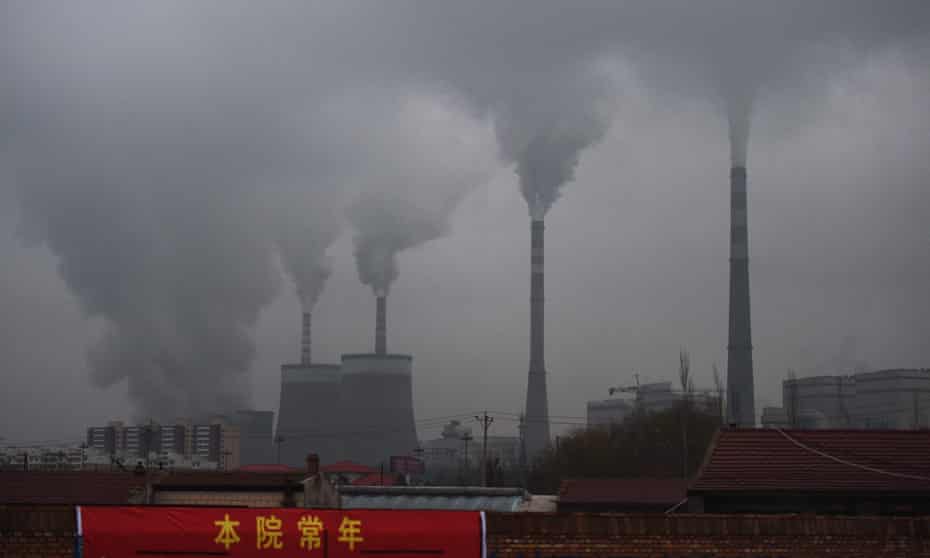The Guardian view on China and Cop26: do not despair
Despite Xi Jinping’s absence in Glasgow, Beijing is taking the climate crisis seriously. It must still go much further

Among the 120 or so world leaders gathered in Glasgow for the Cop26 climate crisis talks, there has been one very conspicuous absence: Xi Jinping, president of by far the world’s largest greenhouse gas emitter, responsible for more than a quarter of all emissions. Mr Xi’s decision to stay away is unsurprising; previously a frequent traveller, he has not left his country for 21 months, since the pandemic took hold. But the reduction of the Chinese leader’s contribution to a written statement, making no new commitments, has highlighted concern about Beijing’s recent decisions.
The first is its announcement that it will build new coal-fired power plants, a response to extensive power cuts. Though experienced observers hope the medium-term impact will be less serious than it appears, it could imperil China’s pledge to peak carbon emissions in 2030. The second is its national plan on greenhouse gas emissions, revealed last Thursday. While better than the 2015 plan, it offers little progress on its already declared ambitions and falls well short of the action needed to ensure global heating does not exceed 1.5C. And in Glasgow, China has (like India and Russia) declined to sign up to the new 80-country pact to cut methane emissions, although it has joined the agreement to halt deforestation over the next decade.
Its failings are, of course, far from unique. China’s carbon emissions per capita are still around half those of the US, and its historical emissions are far lower (though it is catching up fast). Even now, its emissions reflect its role as the world’s factory. Unlike some wealthy countries, it has taken consistent climate action. The US has seesawed, with Donald Trump pulling out of the Paris accord, but even with Joe Biden’s renewed commitment to the issue it has a very long way to go.
China made its key pledges in advance of Cop26, promising to peak emissions by 2030 and to reach net zero by 2060, increasing total wind and solar power generation capacity to 1,200 gigawatts by 2030 to reach those goals. It has also pledged to end involvement in new coal-fired power stations overseas. Over recent years, it has gained a reputation (merited on renewables) for underpromising and overdelivering. And it has every reason to act. Devastating floods in Zhengzhou this summer will have added to long-term concerns about food security and the safety of prosperous, populous coastal cities. It has based its industrial strategy on the move to renewables, in terms of exports as well as a domestic shift.
Its envoy Xie Zhenhua is a veteran of climate talks who has an established relationship with his US counterpart John Kerry and real clout at home – but not the authority to make new commitments without higher approval. China has also warned the US that cooperation cannot be separated from the wider environment of difficult bilateral relations. Its security concerns strengthen its desire to hang on to coal, which it produces domestically. The US and the EU are reportedly looking past China to save their climate strategy, to countries including South Africa and Indonesia.
The real issue is less that China came to Glasgow without a new commitment, but that it is better at unilateral declarations than multilateral engagement. Doing it all on its own terms makes the global progress needed far harder to achieve. At Cop26, China could have positioned itself as a world leader. (Instead, India – the world’s third-largest carbon emitter – is getting the applause, with Narendra Modi, the prime minister, setting a net zero emissions target of 2070 and significant shorter-term commitments.) Meeting the 1.5C target is crucial. China can and must do more. It should seek to do it hand in hand with other nations.
